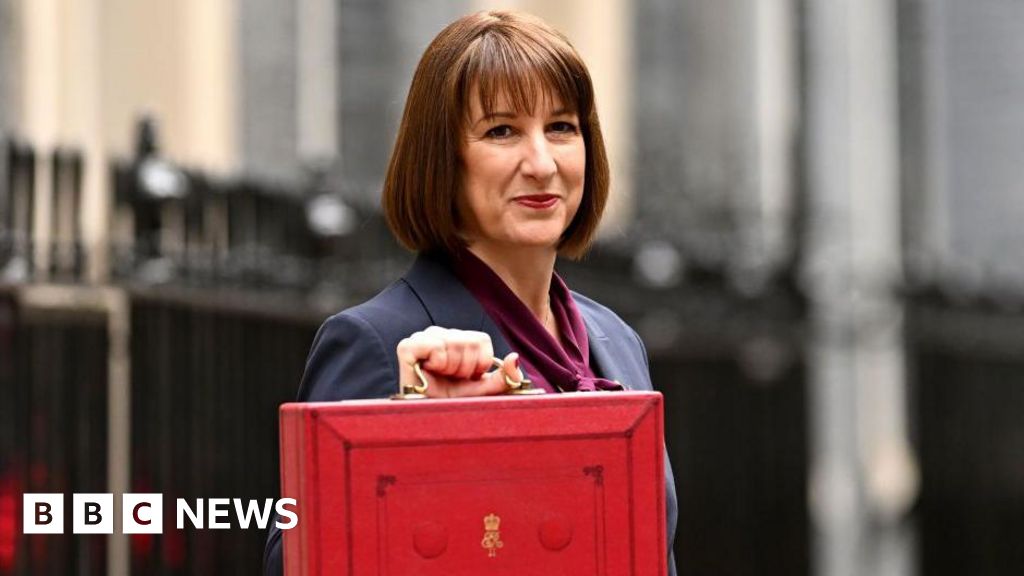Stakeholders are in support of the move by the Federal Government to phase out the use of single use plastics across the country. However, they insist that adequate awareness is required before the full implementation of the policy to minimise job loss and ensure effective enforcement, OLUDARE RICHARDS writes.
On June 25, this year, the Federal Government on announced a ban on single-use plastics in government spaces; a move that would precede an eventual nationwide prohibition of the itemsin January 2025.
While making the announcement, the Minister of State for Environment, Iziaq Adekunle Salako said, “what the Federal Government is doing is preparing the minds of Nigerians for what is to come and leading by example.”
Salako said that a look at the national policy on plastic waste management adopted in 2020 envisaged that by 2025, some categories of plastic would be banned in Nigeria. He said most of the materials to be banned are single-use plastics including straws, cutleries, plastic bottles and small water sachets, which present serious environmental challenges to the country.
Earlier in January, the Lagos State government announced a ban on Styrofoam and other single-use plastics. Some stakeholders, who faulted the decision, had argued that it was detrimental to businesses. However, the government didn’t budge, insisting on full enforcement, as it revealed that single-use plastics, besides its other menace to the environment, clog drains and water channels.
A recent study by the United States Agency for International Development (USAID) reports that Nigeria is among the world’s top plastic polluters, generating over 2.5 million tonnes of plastic waste yearly, and over 70 per cent of which ends up in seas and landfill.
Also, the United Nations Environment Programme (UNEP) stated in a research report that around 19 to 20 million tonnes of plastic leak into aquatic ecosystems yearly, causing harm to over 800 species.
Despite these revelations,a market woman in Festac Town, who identified herself as Madam Flour, lamented that the ban was a looming problem for traders and retailers. She said traders were already groaning over increased cost of nylon bags, which is a rather unavoidable need for packaging their sold items. She disagreed with the view that alternatives would come cheaper, given how people exploit new market opportunities to the detriment of the larger populace.
“If government wants to ban the nylon bags, please they should first provide another option and if they can provide the option, they must make sure we don’t suffer the change because I’m sure our people will increase the prices of the other option. It will likely be more expensive than the nylon bags we are already managing,” Madam Flour told The Guardian.
A woman who was used to selling her food in Styrofoam packs now uses plastic take-away plates usually considered as non-single use. Mama Bisi, who sells at Abule Egba, said she chose the pack because she knows no one who pays so much for a plate would throw it away after a single use.
Mama Boys, who sells moimoi at the public motor park in Oshodi, Lagos, now packs her food in little plastic plates. Buyers could choose to eat them while waiting for the bus to fill up or simply buy the pack along with the food and take it away.
Health professionals, however, insist that the use of plastics for food packaging poses danger to the health of consumers. A medical practitioner, Dr. Morayo Thomas, explained to The Guardian that micro plastics entering the human body via direct exposures through ingestion or inhalation could have several impacts on health.
According to her, these include inflammation, genotoxicity, oxidative stress, apoptosis and necrosis, which are linked to several negative health outcomes including cancer, cardiovascular diseases,inflammatory bowel disease, diabetes, rheumatoid arthritis, chronic inflammation, auto-immune conditions, neuro-degenerative diseases and stroke.
Warning against the use of plastics for food packaging, Thomas said: “The use of plastic products leads to ingestion and inhalation of large amounts of both micro plastic particles and hundreds of toxic substances with known or suspected carcinogenic, developmental or endocrine-disrupting impacts.
“People should listen to these medical recommendations. Several people have ingested plastic and have microplastic in their system. For the environmental part, these things can also contaminate and accumulate in food chains through agricultural soils, terrestrial and aquatic food chains and the water supply. This environmental plastic can easily leach toxic additives or concentrate toxins already in the environment, making them bio-available again for direct or indirect human exposure.”
With the Federal Government’s announcement of the new plastic use policy targeting a phased approach to eliminating plastic waste within five years, producers are expected to shift to alternatives. The government, in its policy, highlighted how proper plastic waste management can create a circular economy, where plastic design, production and use leads to recycling for reuse.
Speaking with The Guardian, the Executive Director of the International Climate Change Development Initiative (ICCDI), Olumide Idowu, stated that to effectively address the problem of single-use plastic, the Federal Government should put into practice stringent measures such as Extended Producer
Responsibility (EPR) and plastic packaging regulation, to curb the problem from source. Other strict enforcement measures he suggested include promotion of reusable alternatives, education and awareness as well as events and campaigns that are free of plastic pollution.
Idowu said these measures would be able to drastically cut down on the usage of single-use plastics and lessen the negative impact it has on the environment.
On the issue of sustainability, Idowu noted that a technique that could be examined in relation to the prohibition on single-use plastics is the implementation of a phased approach as an alternative to a complete prohibition. This, he said, would make it possible to gradually reduce the usage of plastics that are only intended for single use while providing consumers and businesses with the opportunity to adjust.
“It is also possible to lessen the demand for single-use plastic by encouraging and providing incentives for the use of reusable alternatives, such as straws made of stainless steel or cloth bags. Individuals can be encouraged to adopt sustainable behaviours through the use of education campaigns and awareness programmes, which can also play an important role.
“Whenever such rules are put into effect, it is absolutely necessary to take into consideration the potential impact on businesses as well as the availability of alternatives that are within a reasonable price range.
“There are examples and strategies from other countries and societies that could be used by the Federal Government for single-use plastics. They include reduction of plastic packaging, deposit-return systems, EPR and public awareness campaigns,” he said.
He pointed out that while taking into consideration these approaches and modifying them in accordance with the Nigerian environment, it is vital to conduct an assessment of the specific demands and obstacles that they provide.
Executive Director, Youthhubafrica, Rotimi Olawale, who advocated the use of paper-based and bio-degradable materials as viable alternatives, said that what the government needs to do is to ensure that there is adequate publicity and discussion with stakeholders, especially those who are producing single-use plastics, so that they will prepare and in so doing minimise job loss. He stated that stakeholders and producers need incentives as well as the opportunity to pivot into the production of other things.
“I can imagine the impact on the sachet water industry in Nigeria. At the end of the day, the production of single use plastics in Nigeria poses environmental hazards for our country, pollutes the land, while many of them end up in the sea.
“As you can see, we are experiencing a lot of flooding in different parts of the country especially in Lagos and Abuja and most of this is because drainages are blocked by plastic and other kinds of waste. So, I support the government in its efforts to rid Nigeria of single use plastics that many countries on the African continents have already started.
“If you should land in Rwanda with a plastic bag, they would take it from you at the airport because it’s a country that has adopted similar strategies ahead of Nigeria.
“I think the most effective policies recognise the importance of adequate public communication, ensuring that stakeholders are consulted, providing opportunities for people to pivot and providing incentives. If all these work, we won’t need stringent measures,” Mr. Olawale said.
Interim Administrator at the Environmental Rights Action/Friends of the Earth Nigeria (ERA/FoEN) and Coordinator Forest and Biodiversity Programme Friends of the Earth Africa (FoEA), Rita Uwaka, suggested the use of refillable water bottles made of stainless steel or glass instead of single-use plastic water bottles.
“Instead of bottled water cans made from single use plastics, we can use cloth or mesh bags for grocery shopping instead of plastic bags or nylons. Cloth bags are lightweight, washable and can be used multiple times.
“Nigeria is facing a huge plastic waste crisis as millions of low-grade single plastic wastes are dumped into our environment. This continues to pose serious climate and Biodiversity crises including impacts on marine ecosystems.
“The recent ban on single use plastic by the Federal Government is a good start to the plastic pollution crisis we face in Nigeria,” Uwaka said.
According to her, the ban would be as good as playing to the gallery if there is lack of infrastructure and environmental regulation to enforce it, stressing that it entails concerted efforts to reduce plastic production, consumption and trade.
She cited the move by Kenya in 2017 as one of the strictest plastic bag bans in the world. The ban prohibits the production, sale and use of plastic bags with penalties including fines and imprisonment. The government also encouraged the use of alternative materials such as paper bags and reusable bags. The Rwanda Government had enforced a similar ban in 2008.
Uwaka noted that the ban by both countries have resulted in a cleaner environment and reduced plastic pollution.
“Nigeria can emulate these approaches,” she said.

 3 months ago
5
3 months ago
5







![[ICYMI] No N500m missing from customer’s account, says Access Bank](https://cdn.punchng.com/wp-content/uploads/2018/09/14183604/20180707-DSC_0077new.jpg)







 English (US) ·
English (US) ·